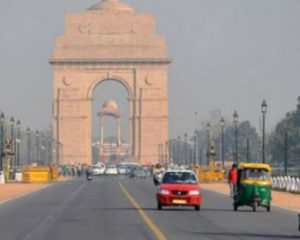
The Central Pollution Control Board on October 15 rolls out an emergency action plan which will help to fight ‘very poor’ and ‘severe’ air pollution in the capital city. The emergency plan will implement strict action against the violators and also fresh rules and regulations will be enforced.
The quality of air is constantly dwindling with the latest recorded Air Quality Index data with major pollutants PM 2.5 is at 168- Moderate and PM 10 at 224-Poor in the Lodhi Road area on October 15.
This is the second year of the Graded Response Action Plan (Grap), which was implemented in 2017.
“Measures listed under Grap to fight ‘very poor’ and ‘severe’ categories of air pollution will be rolled out from October 15. This will continue till March 2019,” said Sunita Narain, member of the Supreme Court-appointed panel Environment Pollution (Prevention and Control) Authority (Epca), which enforces Grap.
She further added, “With Grap being rolled out from Monday, there will be a ban on diesel generator (DG) sets in Delhi. DG sets will, however, be allowed to operate in NCR towns because it would be impractical to ban them outside the national capital, where there is still a problem of power supply.”
Other measures include ban on diesel vehicles, halt on construction activities, ban on stone crushers and hot mix plants, enhancing parking fees and regular water sprinkling in open areas to curb air pollution.
Senior official of Delhi government’s environment department said, “Polluting fuels such as coal, kerosene, furnace oil and pet coke have already been banned in Delhi. While on one hand teams comprising officials from CPCB have fanned out across Delhi and NCR towns, environment marshals deployed by the Delhi Pollution Control Committee are also flagging violations such as open garbage burning and open construction sites. A section of trucks are also being diverted through the Eastern Peripheral Expressway.”
The IMD officials have mentioned that the air quality will enter the hazardous level in Delhi.













